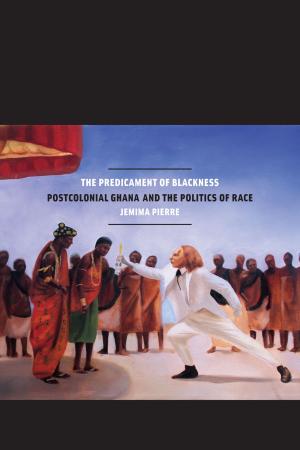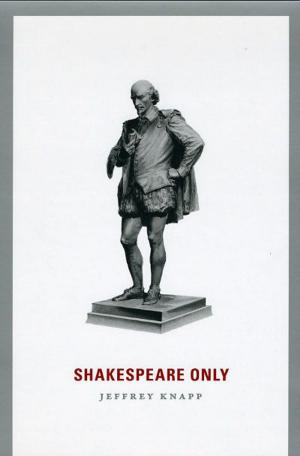A Commentary on Jean-Paul Sartre's Critique of Dialectical Reason, Volume 1, Theory of Practical Ensembles
Nonfiction, Religion & Spirituality, Philosophy, Existentialism, Ethics & Moral Philosophy| Author: | Joseph S. Catalano | ISBN: | 9780226097022 |
| Publisher: | University of Chicago Press | Publication: | January 17, 2013 |
| Imprint: | University of Chicago Press | Language: | English |
| Author: | Joseph S. Catalano |
| ISBN: | 9780226097022 |
| Publisher: | University of Chicago Press |
| Publication: | January 17, 2013 |
| Imprint: | University of Chicago Press |
| Language: | English |
Sartre’s Critique of Dialectical Reason ranks with Being and Nothingness as a work of major philosophical significance, but it has been largely neglected. The first volume, published in 1960, was dismissed as a Marxist work at a time when structuralism was coming into vogue; the incomplete second volume has only recently been published in France. In this commentary on the first volume, Joseph S. Catalano restores the Critique to its deserved place among Sartre’s works and within philosophical discourse as a whole. Sartre attempts one of the most needed tasks of our times, Catalano asserts—the delivery of history into the hands of the average person.
Sartre’s concern in the Critique is with the historical significance of everyday life. Can we, he asks, as individuals or even collectively, direct the course of our history? A historical context for our lives is given to us at birth, but we sustain that context with even our most mundane actions—buying a newspaper, waiting in line, eating a meal. In looking at history, Sartre argues, reason can never separate the historical situation of the investigator from the investigation. Thus reason falls into a dialectic, always depending upon the past for guidance but always being reshaped by the present.
Clearly showing the influence of Marx on Sartre’s thought, the Critique adds the historical dimension lacking in Being and Nothingness. In placing the Critique within the corpus of Sartre’s philosophical writings, Catalano argues that it represents a development rather than a break from Sartre’s existentialist phase. Catalano has organized his commentary to follow the Critique and has supplied clear examples and concrete expositions of the most difficult ideas. He explicates the dialogue between Marx and Sartre that is internal to the text, and he also discusses Sartre’s Search for Method, which is published separately from the Critique in English editions.
Sartre’s Critique of Dialectical Reason ranks with Being and Nothingness as a work of major philosophical significance, but it has been largely neglected. The first volume, published in 1960, was dismissed as a Marxist work at a time when structuralism was coming into vogue; the incomplete second volume has only recently been published in France. In this commentary on the first volume, Joseph S. Catalano restores the Critique to its deserved place among Sartre’s works and within philosophical discourse as a whole. Sartre attempts one of the most needed tasks of our times, Catalano asserts—the delivery of history into the hands of the average person.
Sartre’s concern in the Critique is with the historical significance of everyday life. Can we, he asks, as individuals or even collectively, direct the course of our history? A historical context for our lives is given to us at birth, but we sustain that context with even our most mundane actions—buying a newspaper, waiting in line, eating a meal. In looking at history, Sartre argues, reason can never separate the historical situation of the investigator from the investigation. Thus reason falls into a dialectic, always depending upon the past for guidance but always being reshaped by the present.
Clearly showing the influence of Marx on Sartre’s thought, the Critique adds the historical dimension lacking in Being and Nothingness. In placing the Critique within the corpus of Sartre’s philosophical writings, Catalano argues that it represents a development rather than a break from Sartre’s existentialist phase. Catalano has organized his commentary to follow the Critique and has supplied clear examples and concrete expositions of the most difficult ideas. He explicates the dialogue between Marx and Sartre that is internal to the text, and he also discusses Sartre’s Search for Method, which is published separately from the Critique in English editions.















